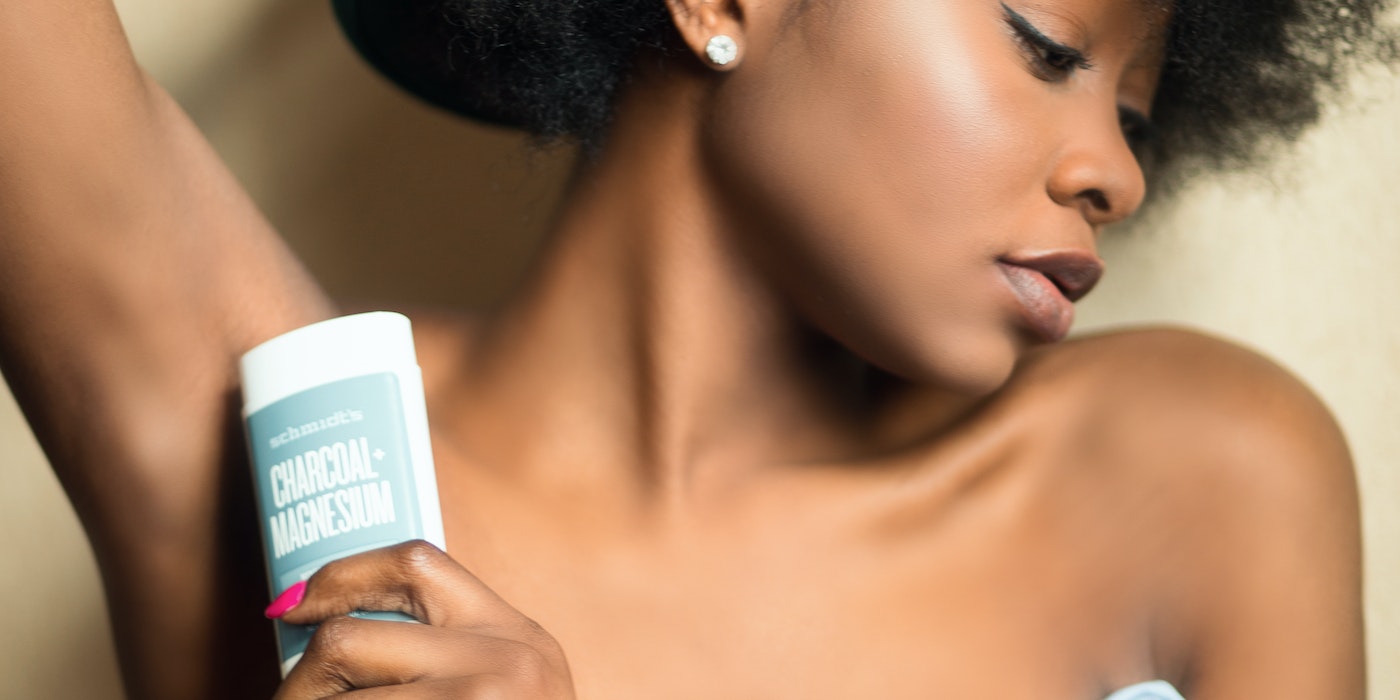What Causes Body Odor?
Body odor is also referred to as bromhidrosis. Body odor is a frequent issue that can significantly lower a person’s quality of life. It can occasionally be a sign of a more serious underlying condition, even if its underlying causes are frequently related to a person’s hygiene.
A mixture of bacteria and sweat on your skin is what causes body odor. Hormones, infections, the food you consume, drugs you take or medical conditions like diabetes can influence how you smell. The human body produces different substances which have a smell.
Many of them are crucial for normal biological function and do not produce offensive scents in modest amounts. However, an excessive buildup of these substances on the skin might result in odors.
Many people mistakenly believe that sweat is the root of body odor. Human sweat has a minimal odor.
However, the quick growth of bacteria and subsequent conversion of sweat into acids might result in offensive odors. People who perspire a lot, such as those who have hyperhidrosis, may therefore be more prone to acquiring body odor. Sweating is the fluid discharge of sweat glands onto the surface of your skin.
Your body regulates temperature via sweating. While perspiration alone has almost no odor, it serves as a breeding environment for germs that grow quickly.
What you smell is a byproduct of the keratin protein on the surface of your skin being broken down by microorganisms.
Eccrine and apocrine are the two different categories of sweat glands. The apocrine glands are in charge of creating body odor.
Body odor might have an onion-like, sweet, sour, or tangy fragrance. Your body odor is not necessarily influenced by how much you sweat because of this, a person may have an offensive body odor but not sweat.
On the other hand, a person can sweat heavily without smelling. This is because, rather than being caused by sweating itself, body odor is a product of the sort of bacteria on your skin and how those bacteria interact with sweat.
Body odor can affect people of any age, race, and sex. Because apocrine sweat glands and sebaceous glands do not become active until puberty, body dour is more common in adults than in children.
The body dour of the elderly differs from that of newborns, prepubescent children, teenagers, and adults. It primarily affects men and can be a problem in hot, humid tropical settings.
Studies indicate that axillary malodor is more common in Europeans and Africans than Asians, suggesting a hereditary susceptibility.
The following areas are most prone to body odor: armpits, feet, genitals, groin, belly button and behind the ears.
Causes of Body Odor
Apocrine sweat glands
Humans have apocrine, eccrine and sebaceous sweat glands. While apocrine and sebaceous sweat glands are restricted to certain regions of the body, eccrine sweat glands are found in all skin types.
The apocrine sweat glands that become active throughout puberty are the main culprits of body odor. These sweat glands grow in areas with hair, such as the scalp, genitals, and armpits, where they release an oily fluid that contains proteins, lipids, and steroids.

Apocrine sweat glands are responsible for body odor. The armpit regions appear to be more significant for body odor in humans than the genital area.
Additionally, springy hairs can be seen in the armpit and vaginal areas, which can aid to mask body odor.
Diet
Your diet may occasionally result in an immediate change in how you smell. For instance, after consuming asparagus, many people notice a sudden, strong odor coming from their urine. Unless the food is eaten frequently, the odor will disappear once digestion takes place. Also, some foods may improve the production of gas which may lead to belching.
Foods that are fat soluble tend to increase the odor of your sweat. These foods include; cabbage, salmon, cauliflower, asparagus, broccoli and so on.
Your overall diet affects body odor. Research reveals the link between excessive glucose intake and less pleasant-smelling sweat. Studies also show that consuming a lot of meat may hurt body odor.
Stress
Stress or anxiety may cause you to sweat in an excessive way which could exacerbate your body odor.
If you have hyperhidrosis disorder, you tend to sweat or perspire excessively. Some individuals genetically have this problem.
Research confirms that there is a connection between stress and hyperhidrosis. Stress is a common side effect for those who have this illness, especially if uncontrollable sweating lowers their confidence or self-esteem.
Menopause, menstruation, and pregnancy
According to research, women who are fertile during their menstrual cycle have a particular scent that makes males find them more appealing than those who are not. Sometimes, hormone changes may result in a change in the smell of the body.
Hormone fluctuations brought on by your monthly cycle, pregnancy, menopause, and puberty can raise your body temperature and make you sweat more. Women in particular may sweat more after giving birth as their bodies release extra fluid when their hormone levels normalize.
Skin infections and Bacteria
Skin infections can cause body odor. Common skin bacteria like Corynebacterium, Cutibacterium and Staphylococcus can also cause body odor.
Vitamin and Mineral Deficiencies
A lack of vitamins and minerals in the body or vitamin and mineral deficiencies can cause body odor.
Vitamin and mineral deficiencies are when you do not get sufficient vitamins or minerals in your diet. It can also be that your body does not absorb the nutrients available in what you consume.
For instance, a lack of vitamin C can make your sweat smell bad.
How To Get Rid of Body Odor
There are natural ways to get rid of body odor.
Wear breathable fabrics or an anti-odor undershirt
Using breathable, natural materials like cotton or bamboo can aid in eliminating body odor. On the other hand, synthetic textiles like polyester and rayon force moisture and bacteria outward, leading to a more overt odor as well as sweat marks.
An excellent natural technique to stop body odor is by wearing an undershirt. To keep moisture in check and lessen odor, undershirts provide an additional layer of absorption.
Watch Your Diet
Your diet has both positive and negative effects on how you smell. To get rid of body odor, ensure you take enough fruits, yoghurt, herbs, pickles, and kefir.

Avoid the following:
- Hot foods
- Foods with onion and garlic
- A surplus of red meat and packaged food
- Sulfur-containing foods, such as broccoli, cabbage, and cauliflower
- Excessive amounts of caffeine and alcohol
- Wash with All-Natural Antibacterial Bath Soap
The pungent smell you associate with body odor is caused when sweat and germs on your skin combine. Attacking the microorganisms that cause body odor is the simplest approach to getting rid of them.
Wash using antibacterial bath soap to stay clean and odor-free. Some soaps contain substances like triclosan that could be dangerous. Stay with soaps and body washes made with just natural components if you are concerned about chemicals in consumer body care goods.
Regularly Change Your Laundry
Changing your laundry regimen may help you if you have trouble getting rid of body odor.
Sweaty clothing should be washed as soon as possible. If sweat is allowed to soak into the fabric, it will be difficult to remove the odor.
Ensure you wash your clothes from the inside out so that the detergent can do a better job of getting rid of sweat and stink.
You can also add one cup of vinegar to your wash cycle. Vinegar can be added to the cargo to get rid of strong smells.
Use Antiperspirants and Deodorants
Antiperspirants and deodorants are frequently used to lessen or stop body odor. Chemicals in deodorants kill skin flora and stop the generation of foul byproducts.
Antiperspirants stop sweat glands from producing as much perspiration. Many of them contain aluminum chloride, which produces a gel-like substance that plugs the skin’s sweat ducts.
The antimicrobials propylene glycol, triclosan, and benzalkonium chloride, which reduce bacterial abundance and modify the skin microbiome in the armpits, are present in many deodorants and antiperspirants.
Bath Regularly
Ensure you bathe regularly to get rid of body odor.
Conclusion
Body odor is a common problem which can affect one’s self-confidence. You can get rid of it by bathing regularly, using deodorants, and regularly changing your laundry. You should also consider changing your diet and adding nutrients rich foods to your diet.




